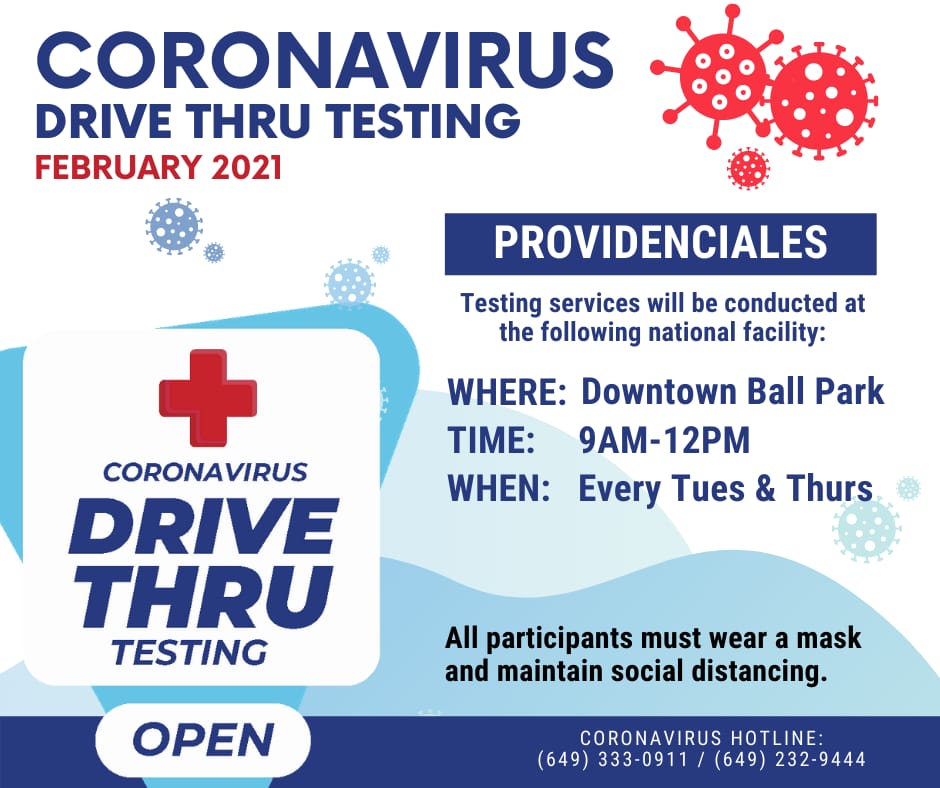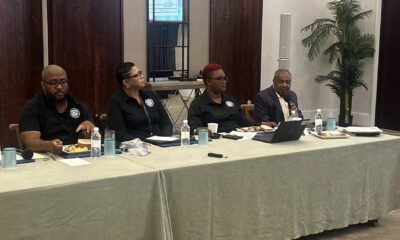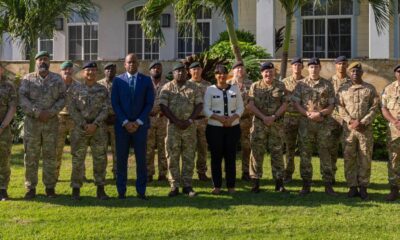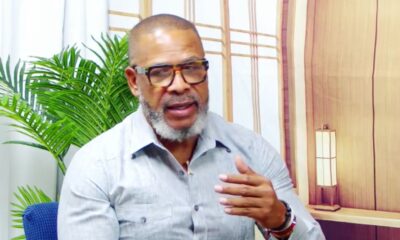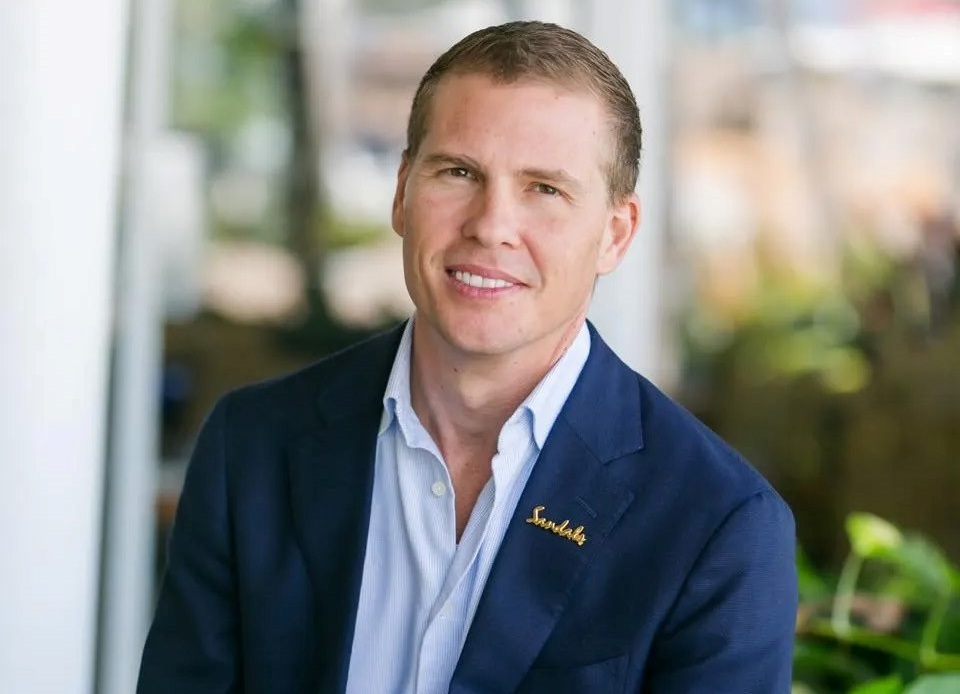#TurksandCaicos, March 8, 2021 – Spanx, now a billion dollar company was launched with just $5,000 of personal savings and family support to a then 27-year old Sara Blakely.
The Ritz-Carlton brand,
which we are soon to see officially labelling a new luxury hotel on Grace Bay
was started in the 1920s with just under $6 million; now the franchise has
30,000 resort rooms all over the world.
So far be it from
possible to think $11 million dollars in capital couldn’t revolutionise the
lives of ordinary Turks and Caicos Islanders.
Here is the man who
dares us all to dream bigger, instead of flushing a free gift down the consumer
toilet.
Benneth Williams is
known as a hard-working man who wears a number of caps which lead him to lend
to the development of children, protection of the environment, healthier living
and cultural appreciation.
“My father’s name is
Arthur Williams and my mother’s name is Winefred McIntosh. I’m from Providenciales, Turks and Caicos
Islands. I was brought up in the Bight,
Providenciales. I went to school in
South Caicos,” said Williams when we asked him to tell us who he is.
The husband and father
goes on to speak about the family he has now built and his personal passions
including in sports and environmental sustainability.
Eventually he gets to
the meat of the matter, that the money Government is giving in a cash stimulus
could become the gift that keeps on giving.
This story started with
Benneth Williams sending to me advice on what to do and what not to do once I
received the government-granted $1,000 cash stimulus, as a relief to economic
hardships brought on by the Coronavirus Pandemic.
“Create a budget;
address essential needs; add to a personal emergency fund; pay down on debt;
help your local community; open a high-yield savings account; invest in
yourself and improve your skills; donate to those in need…just my two cents,”
said Mr. Williams on March 2, 2021 in a WhatsApp message.
Williams is a man of
many opinions and many ideas about what it takes for Turks and Caicos to be
better. He put those thoughts to action,
when he offered in the 2016 general elections.
He was not successful in the bid, but this advocate is not silenced.
“You probably don’t
want to hear what I think about this $11 million dollars. I think all of us should collectively open up
our own bank and use this $11 million dollars. All of us would have shares or
maybe if all of us decided, we’re not going to take this money and invest it in
a hotel where all of us have shares in that hotel,” said Williams who added, “I
understand there is a hotel on Grace Bay where its profit last year was $126
million dollars. A hundred and
twenty-six million dollars! I’m not sure
if what I heard was right but you’re talking $11 million dollars investing in
something where everybody, all 11,000 of us could be shareholders!”
Williams sees the cash
grant as a not-to-be-wasted opportunity for financial security of islanders.
The Progressive
National Party ran an election campaign which promised residents that a
substantial payout of cash was what the effect of the pandemic demanded and
what the people of the islands required.
Seven days after taking
office, the announcement of a $1,000 hassle-free cash stimulus to all Turks and
Caicos Islanders and all British Overseas Territory Citizens (resident in TCI
12-months) came. Two days later the registration
portal was opened and two days after that, residents began receiving e-mail
messages that they had been approved for the money.
“People should really
consider this money and see what we can do with this money, because you don’t
have the money now and you’re still living so maybe use it for something
bigger.”
Benneth and Shauna, his
wife have been married for 22-years and have three children.
One son wants to attend
what Mr. Williams called, “an expensive football school…” and as parents of the
talented athlete, they want to give him the best possible education and
experience they can. Williams said a
national coming together of this kind would make that lofty dream more of a
reality for Turks and Caicos families.
“This is $11 million
dollars and if you give it to me and with my $1,000 I go ahead and invest it,
then five years from now what really is my investment going to be? Not
much. But I think if collectively we put
that money together and decide that we are going to invest it into something
that is tangible and unique to the Turks and Caicos Islands we can see
something that our children can say, this is the sacrifice our parents made and
this is the reward I am getting right now from their investment, that they did 10
years or 15 years ago.”
Key ideas coming from
the swimming and football coach were for a re-boot of a Turks and Caicos bank
or a 100% Turks and Caicos Islander owned hotel, in the northwestern end of
Providenciales.
“How about that? Banking with your own bank. Doing business with your own bank. Make your money, make money for you. Or what about a hotel down in Northwest
Point? Nothing much is up there, but
there is a hotel in that area raking in millions of dollars. Why not, we do the same thing! Villas are making money, private villas are
making money and that is the same thing in northwest point. Let us invest in something that is tangible,
that we can have somebody run it and all I am looking at is the bottom line so
that I can get the return on my investment.
Something I can use to send my kids to school, I can use to make other
investments, I can help my daughter with swimming lessons, help my kid in going
to the school he really wants to.”
Williams said so many
islanders have to face an often heart-breaking reality when they are unable to
provide for their families in more meaningful ways.
Williams said the
stifling feeling of lack can all be a thing of the past if recipients of the
free-cash were to merge the money for this cause of greater financial
security.
“We don’t own anything
in Grace Bay and that can all change.
It’s just my thought, maybe we could invest the money versus all of us
going to pay a company that is already raking in millions of dollars to take
yourself out of a hole only to still be in indebt years from now.”
The message of Mr.
Williams is not a unique one, though at this time it grabs special
attention.
Economic empowerment
for Turks and Caicos Islanders is often touted by politicians, preachers,
corporate and civic leaders and the layman, but unlike any other time in
history, the Government has been given the green light to distribute funds to
help and indigenous islanders and those funds could wisely be used to build a
revenue generating future.
“We can all sell this
destination for ourselves but we have to do it collectively, together and that
is all I’m saying.”
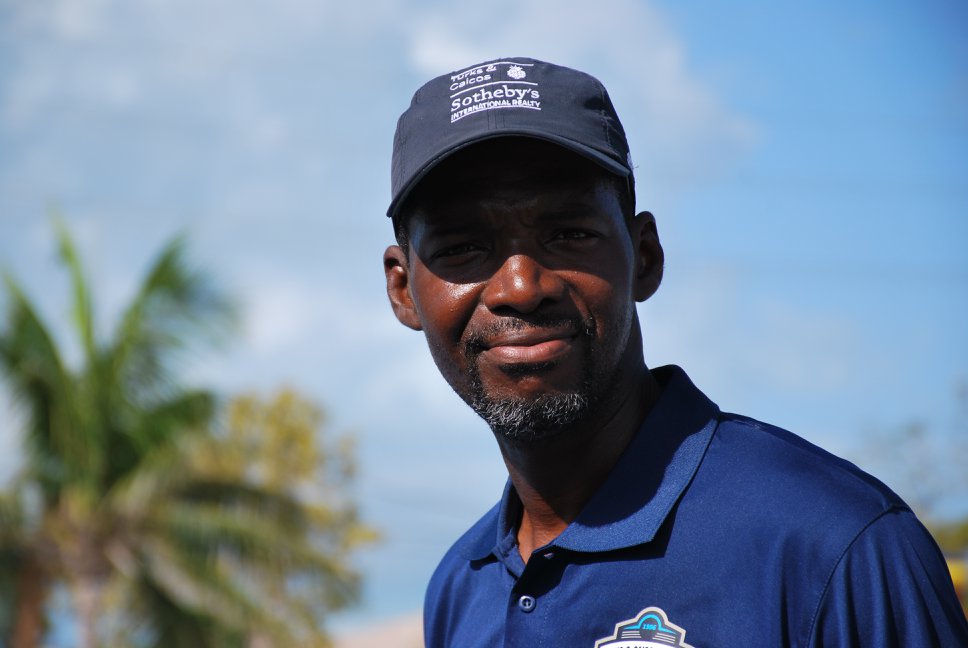

 News1 week ago
News1 week ago
 Bahamas News5 days ago
Bahamas News5 days ago
 Bahamas News4 days ago
Bahamas News4 days ago
 Caribbean News1 week ago
Caribbean News1 week ago
 News1 week ago
News1 week ago
 Health4 days ago
Health4 days ago
 News1 week ago
News1 week ago
